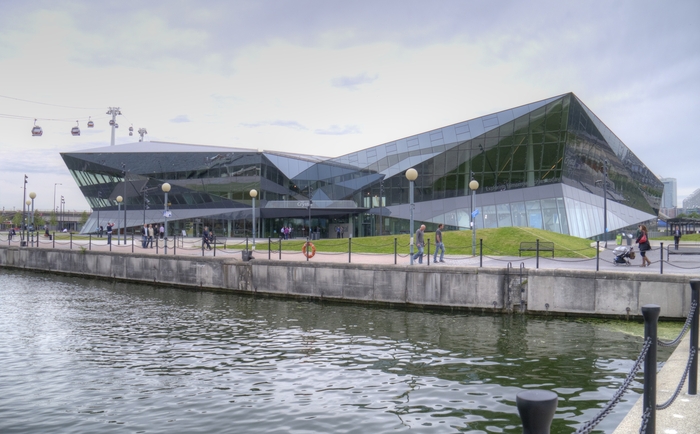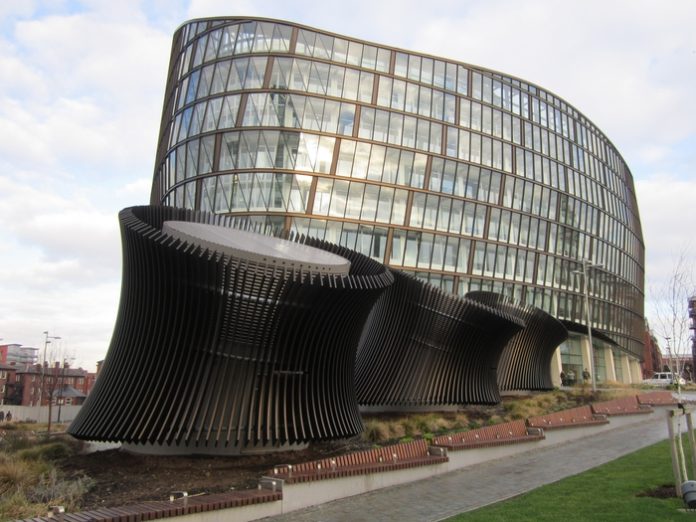Facilities management is a crucial aspect of commercial property. It involves the maintenance and upkeep of buildings, equipment, and other assets to ensure they are in good working condition. With the advent of technology, facilities managers (FMs) can now do their jobs better, more efficiently, and with less impact on the environment. In this article, we will explore how technology is helping FMs in commercial real estate (CRE).
Smart Sensors for Smarter Buildings
The Internet of Things (IoT) is a beacon of technological advancement in facilities management. Imagine sensors spread across a building, monitoring temperature, humidity, air quality, and energy consumption. FMs leverage this data to understand building dynamics and tweaking settings for optimal energy usage.
One Angel Square, Manchester, employs IoT sensors for energy management. It features a thermal labyrinth that uses outside air to regulate internal temperatures. The building consumes 50% less energy than typical offices, thanks to its intelligent HVAC (Heating, Ventilation, and Air Conditioning) system and efficient lighting. Sensors monitor equipment health, allowing timely building maintenance and minimising downtime. The building is BREEAM (Building Research Establishment) certified as ‘Outstanding’ for sustainability. However, with great strides come cybersecurity risks that must be addressed to keep buildings secure.
Protecting Our Smart Spaces Against Cyber Threats
The surge in IoT devices brings along significant cybersecurity challenges. With potential vulnerabilities like weak passwords and insecure interfaces, hackers could breach a building’s systems. To tackle this, FMs need to develop a solid understanding of IoT cybersecurity, executing strategies to mitigate risks and fortify building security.
In March 2021, Verkada, a cloud-based video surveillance service, experienced a significant breach. Attackers gained access to live feeds from over 150,000 cameras mounted in various locations such as NHS hospitals, care homes, schools, and prisons. This incident highlights the vulnerability of IoT devices, including surveillance cameras, to cyber-attacks.
Building Information Modelling (BIM)
Another game-changer is Building Information Modelling (BIM) software, offering a digital replica of a building. FMs use BIM to comprehend a building’s design, construction, and operation, facilitating precise modifications. FMs turn to BIM to diagnose issues and draft effective rectification plans if a building is underperforming.
Nurturing Sustainability with Technology
Technology empowers FMs to champion sustainability. Energy management systems enable the monitoring and control of energy consumption, while renewable energy sources like solar panels and wind turbines contribute to greener electricity. By reducing energy consumption, FMs play a pivotal role in minimizing the carbon footprint of commercial buildings.

The Crystal located in Greenwich, London is a unique events venue and is one of the world’s greenest buildings. The building incorporates IoT technologies, solar panels, rainwater harvesting, and smart lighting. Real-time data from building sensors helps to optimise energy usage, reduce operating costs, and minimise environmental impact. Additionally, visitors can explore the building’s sustainability features through interactive displays powered by IoT.
Outsourcing IT: Maximising Efficiency and Minimising Risks
Outsourcing IT and telecoms to a Managed Services Provider (MSP) like Modern Networks emerges as a strategic move for FMs in commercial real estate. It not only reduces costs but also enhances efficiency, allowing FMs to focus on core competencies. Moreover, outsourcing keeps FMs abreast of the latest technology trends, minimising risks through expert cybersecurity solutions.
Embrace the Future of Facilities Management
As technology continues to evolve, the role of FMs in commercial property will only become more dynamic. The current tools like IoT, BIM, and smart building technology are just the beginning. By embracing these innovations and outsourcing non-core functions, FMs can truly excel in enhancing the overall performance of commercial buildings. As we look ahead, more groundbreaking solutions are on the horizon, promising a brighter future for facilities management.
About Modern Networks
Modern Networks, established in 1999, is a leading provider of IT, broadband and telecom services to the UK’s commercial property sector. Our headquarters are in Hitchin, Hertfordshire, with regional offices in Cambridge, Guildford, Exeter, and Central Manchester. We provide IT support, network services, connectivity and cyber security to over 2,000 commercial properties, 160 shopping centres, 60 retail parks, 45 business and science parks. We hold international standards for Environment, Information Security, and Quality, and have earned SafeContractor accreditation, Cyber Essentials certification.
Visit www.modern-networks.co.uk
Call 01462 426500



















